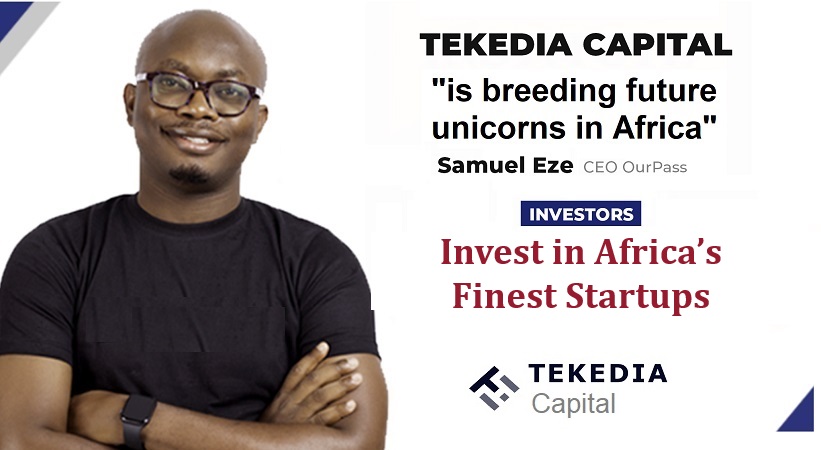News
How to create a cryptocurrency

How to create a cryptocurrency
If you want to create a file cryptocurrencyyou have about four options to choose from:
- Create your own blockchain and native cryptocurrency.
- Modifying the code of an existing blockchain (a hard fork).
- Establish a new cryptocurrency on an existing blockchain.
- Hire a blockchain developer to create a cryptocurrency for you.
Only the last option does not require programming knowledge and experience. The other three require proficiency in programming languages such as Python, C++, Java, Ruby, Solidity or others. It is also important to note that it is very rare for a blockchain and a cryptocurrency to be created by just one person. There are simply too many factors to consider, which is why you see teams of developers working on these projects via a GitHub repository or other programming project collaboration websites.
Key points
- Anyone can create a cryptocurrency if they have the right skills.
- Creating a cryptocurrency from scratch requires skills in one of the many programming languages available.
- You can find automated cryptocurrency creation websites that will create one for you.
- Before creating a cryptocurrency, make sure you understand what you can legally do with it in your country.
- Creating a cryptocurrency is a great way to learn how blockchains work and what cryptocurrencies are.
Questions to answer before creating a cryptocurrency
As cryptocurrencies have become popular among speculators and people looking to profit from emerging technology, it’s natural to wonder whether you should create one and get in on the action. However, there are some questions you should ask yourself before starting a project like this.
Why do you want to create a cryptocurrency?
If you are creating a cryptocurrency to try to enter the market for a share of the profits, you will have to come up with something that is completely unique and legal. At this point, another cryptocurrency on the market is simply another cryptocurrency: unless you offer something truly different, your cryptocurrency will likely have no impact.
Establishing a clearly defined vision and mission can help you decide how to proceed. Define the problem you want to address with a blockchain and a cryptocurrency. If it sounds like starting a business, that’s because it is. The cryptocurrency market is mature enough at this point that new projects need to solve specific problems and be competitive.
But if you want to create a cryptocurrency because you’re curious and interested, or you and some friends want to learn more, it’s a cutting-edge learning experience and could even be fun.
Do you have the knowledge to program and maintain a cryptocurrency?
Most importantly, you will need to know how to code to create your own blockchain and cryptocurrency. If you have acquired the knowledge and have the experience, you should be able to get started. If not, be prepared to learn and gain experience programming distributed ledgers, using cryptographic techniques, developing processes and procedures, applying game theory, and correcting coding errors.
It also helps to have a circle of trusted programmers or friends because building a blockchain and cryptocurrency, maintaining it, protecting it, and continuing to develop it after its release is a significant undertaking. But again, whether you’re doing it to learn or for fun, it’s a great way to see what the blockchain and cryptocurrency boom is all about.
1. Create your own Blockchain and cryptocurrency
You can write your own code to create a new blockchain that supports a native cryptocurrency. Pursuing this option usually requires extensive training and experience with coding and a fundamental understanding of blockchain technology, but it also offers maximum design freedom. If you want to create a cryptocurrency that is truly new or innovative in some way, then building your own blockchain to support that coin is the best option.
If you decide that building a new blockchain is your next step, then here’s what you need to do:
- Choose a consensus mechanism: The operating protocol of a blockchain is also known as a consensus mechanism. The most commonly used consensus mechanisms are proof of work (PoW) AND proof of stake (PoS).
- Design your blockchain architecture: Should your blockchain be private or public? Authorized or without authorization? You can decide and it all depends on the reasons why you create a cryptocurrency.
- Check your new blockchain and its code: Many cryptocurrency developers choose to hire specialized blockchain auditors to review their blockchain code and identify any vulnerabilities.
- Check legal compliance: It’s a good idea to pay for expert legal advice before minting any new cryptocurrency. Legal professionals can confirm that your cryptocurrency complies with all relevant laws and regulations.
And then, finally, you’re ready to mint your own new cryptocurrency. How many coins you decide to issue initially is up to you. You can decide to mint your entire coin supply in one batch, or gradually increase your coin supply over time as new blocks are added to the blockchain.
2. Modify the code of an existing Blockchain
You may decide to use the source code of another blockchain to create a new native blockchain and cryptocurrency. Pursuing this option still requires technical knowledge, as you may choose to modify the source code to meet your design goals.
The code for most blockchains is open source, meaning anyone can view and download it. You can find the source codes of most blockchains at GitHub platform.
After downloading and modifying the source code of an existing blockchain, you still need to work with a blockchain auditor and obtain professional legal advice. Next, you are ready to mint your new cryptocurrency.
3. Establish a new cryptocurrency on an existing Blockchain
You can create a new cryptocurrency without first creating or modifying any blockchain. Platforms like Ethereum blockchains are designed to host cryptocurrencies from many different developers.
Creating a token using an existing blockchain may require some technical expertise, but it is possible for anyone with moderate computer skills to create a cryptocurrency using platforms designed to create them for you. Here are some basic steps to create a new token on an existing blockchain platform:
- Choose the blockchain platform: Your first step is to decide which blockchain should host your token. You have many options, with the Ethereum platform and Binance Smart Chain being the most popular.
- Create the token: The process required to create your token varies based on the platform you choose and what you’re trying to do. Creating a highly customized token generally requires advanced technical knowledge, but free online tools like WalletBuilders can facilitate the token creation process in just a few clicks.
- Mint your new cryptocurrency: After creating the cryptocurrency, you are ready to mint new tokens. Using a trusted platform like Binance Smart Chain or Ethereum means you may not need the services of a professional auditor or lawyer before issuing a batch of tokens.
Your token can benefit from the security provisions of an established blockchain platform, and the blockchain platform can offer other innovative features for token creators. Being associated with an established blockchain platform can help improve the value and credibility of your token.
4. Hire a Blockchain Developer to create a cryptocurrency for you
You can create a new coin or token with any degree of customization by hiring a blockchain development company. Many businesses, known as blockchain as a service (BaaS) companies exist to create and maintain new blockchain and cryptocurrency networks.
Some BaaS companies develop custom blockchains, while others use their existing blockchain infrastructure. You can also partner with a BaaS company to launch a highly customized token on an existing blockchain platform. Some of the more notable BaaS companies include Amazon Web Services, Microsoft Azure, ChainZilla, and Blockstream.
Pros and cons of creating a cryptocurrency
Professionals
-
It can customize the cryptocurrency in any way
-
Opportunity to learn more about blockchain technology
-
Value Capture Potential for Cryptocurrency
Against
-
Generally requires technical knowledge
-
It can be time consuming and expensive
-
It requires ongoing maintenance for cryptocurrency to be successful
What to know before creating a cryptocurrency
Anyone can create a cryptocurrency, even just for fun. But launching a cryptocurrency that is successful and gains value generally requires commitments of time, money, marketing, programming skills, and other resources. Creating a cryptocurrency is the easy part if you choose a service that does it for you. However, maintaining and cultivating it over time is usually much more challenging.
If you’re simply curious about cryptocurrencies, there’s probably no harm in creating your own token. Just make sure to avoid any activities that could be considered a Initial Coin Offering (ICO) by the United States Securities and Exchange Commissionas you don’t want to accidentally violate any federal securities laws.
It’s also important to understand that there are many other projects related to coins and tokens, so you won’t be the only person or organization experimenting with creating your own cryptocurrency or blockchain – the competition will be fierce if you’re looking for an income opportunity.
Can I create my own cryptocurrency?
You can create your own cryptocurrency. Usually by creating a new one coin or token requires some experience in computer coding, but you can also choose to hire a blockchain developer to create a digital currency for you. Launching a token on an existing blockchain platform like Ethereum can be accomplished with relatively little technical expertise.
How much does it cost to create a cryptocurrency?
The cost of creating a cryptocurrency varies widely based on how much you choose to customize the coin or token. Highly customized coins established on natives blockchain they are the most expensive to create, while launching a standardized token on the Ethereum platform can be free via apps like WalletBuilders.
Is it legal to create a cryptocurrency?
Creating a cryptocurrency is generally legal, although some countries and jurisdictions have partially or completely banned cryptocurrency. In China, for example, raising funds via virtual currencies has been illegal since 2017, and all cryptocurrency transactions have been banned ever since. Even where cryptocurrency is legal, it is possible to conflict with existence securities regulations when launching and promoting a new cryptocurrency.
The bottom line
While creating a cryptocurrency can be challenging, creating one without much effort or programming knowledge is possible. Before creating one, it is best to identify why you want to create one and what its purpose will be. This way, you can determine whether you will need regulatory approval for what you are doing or whether you can simply get involved in an emerging and exciting technology.
News
US Cryptocurrency Rules Delayed by ‘Never-Ending’ Lawsuits

Ripple CEO says cryptocurrency industry still seeking regulatory clarity from US
Speaking to Bloomberg News on Wednesday (July 17), Author: Brad Garlinghouse he said America is behind behind other countries which have already adopted cryptocurrency regulations.
“What we’re seeing, where it’s the UK, Japan, Singapore… even the European Union, more than two dozen countries have come together to provide a framework for cryptocurrency regulation,” Garlinghouse said.
“It’s frustrating that we as a country can’t get that regulatory framework in place. And instead, we have this never-ending lawsuit coming from the SEC that doesn’t really address the problem.”
Ripple has been the target of some of these legal disputes. Securities and Exchange Commission (SEC) sued the company in 2020, accusing it of conducting a $1.3 billion operation offering of unregistered securities tied to its XRP token.
However, last year a judge ruled that only Ripple’s institutional sales of XRP, not retail sales, violated the law, a decision widely seen as a victory for the cryptocurrency industry.
As PYMNTS noted at the time, that ruling has “far-reaching repercussions impact across the digital asset ecosystem, which has long maintained that its tokens do not represent securities contracts.”
However, Garlinghouse told Bloomberg on Wednesday that the company cannot wage multimillion-dollar legal battles over each token.
He spoke to the news agency from the Republican National Convention in Milwaukee, where the party is backing the candidacies of former President Donald Trump and Ohio Sen. J.D. Vance, both of whom are considered pro-cryptocurrency.
But Garlinghouse argued that cryptocurrencies “should not be a partisan issue,” and noted that he had recently attended a conference in Washington that included Democrats, including White House officials.
“I think they were there, listening to the industry… it was refreshing to start having that conversation,” she said.
President Joe Biden earlier this year he vetoed a measure which would have ended the SEC’s special rules for crypto-asset custodians. This legislation was supported by both the digital asset industry and the banking industry.
Ripple early this year donated $25 million to the cryptocurrency industry’s super PAC Fair Smoothiewith Garlinghouse stating at the time that such donations would continue every year, as long as the industry had its detractors.
Second Open SecretsWhich monitor spending For campaigns, the PAC has spent $13.4 million this year, much of it to help defeat Rep. Katie Porter’s (D-Calif.) U.S. Senate campaign.
News
The Future of Cybersecurity in the Cryptocurrency Industry

The cryptocurrency space has had a tumultuous journey, with its fair share of ups and downs. As we look to the future, one area that remains a constant focus is cybersecurity. The digital nature of cryptocurrencies makes them inherently vulnerable to cyber threats, and as the industry evolves, so does the landscape of potential risks.
In 2022, the cryptocurrency market faced significant challenges, with over $2 trillion in market value lost. This event served as a wake-up call for the industry, highlighting the need for robust cybersecurity measures. The future of cryptocurrency security is expected to see a shift towards more regulated and established institutions taking the reins of crypto technology and blockchain infrastructure.
The decentralized nature of cryptocurrencies offers numerous benefits, such as transparency and financial inclusion. However, it also introduces unique security challenges. The risk landscape is filled with threats such as hacking, phishing, ransomware attacks, malware, and social engineering. These threats not only lead to financial losses, but also damage the reputation and trust within the cryptocurrency ecosystem.
Mini-MBA Tekedia edition 15 ((September 9 – December 7, 2024) started recordings; Register today for discounts reserved for early bird customers.
Tekedia AI in Business Masterclass Opens registrations Here.
Join the Tekedia Capital Syndicate and IInvest in Africa’s best startups Here.
The decentralized nature of cryptocurrencies offers many benefits, but it also presents unique security challenges. Cyber risks such as hacking, phishing, and ransomware pose threats to the integrity of digital assets. The infrastructure that supports cryptocurrencies is not immune to vulnerabilities, including smart contract flaws and exchange hacks.
To address these vulnerabilities, the infrastructure that supports cryptocurrencies must be strengthened. Smart contract vulnerabilities, exchange hacks, wallet breaches, and flaws in the underlying blockchain technology are significant concerns that must be addressed to ensure the security and integrity of digital assets.
As cybercriminal tactics and techniques become more sophisticated, the cryptocurrency industry must stay ahead of the curve. The future will likely see more targeted attacks, exploiting weaknesses in infrastructure, networks, and human factors. This requires a proactive and multifaceted approach to cybersecurity.
To mitigate these risks, several measures must be adopted:
Strengthening security measures: Developers, exchanges, and wallet providers must improve security protocols, use strong encryption, implement multi-factor authentication, and conduct regular security audits.
Education and awareness: Users should be educated on best practices for protecting their digital assets, including using strong passwords, recognizing phishing attempts, and using hardware wallets for secure storage.
Looking ahead, the cryptocurrency industry is expected to see an increased focus on robust security measures. Blockchain projects and exchanges are likely to invest in advanced encryption techniques and decentralized storage solutions to protect user assets. The future impact of cyber risk on cryptocurrencies will depend on the collective efforts of stakeholders to address vulnerabilities and strengthen security measures.
Collective efforts by stakeholders in the cryptocurrency space are crucial to address vulnerabilities and strengthen security measures. While challenges persist, advances in cybersecurity technologies and practices offer hope for a more secure and resilient cryptocurrency ecosystem.
The future of cybersecurity in the cryptocurrency industry depends on finding a balance between innovation and regulation. It requires a collaborative effort from all parties involved, from developers to end users, to create a secure environment that fosters trust and growth in the industry. As we move forward, it is critical that lessons learned from past events guide the development of stronger security measures, ensuring the longevity and stability of cryptocurrencies as a vital part of the modern economic toolkit.
Like this:
Like Loading…
News
Bullish XRP and RLBK price predictions rise, outpacing the broader cryptocurrency market, prompting Shiba Inu holders to switch!

Bitcoin’s one-week surge from $60,000 has pushed other cryptocurrencies into an uptrend. However, for many altcoins, this trend has been temporary. Altcoins such as XRP and Shiba Inu (SHIB) have experienced price drops. However, Rollblock, a new altcoin on the Ethereum blockchain, has thrived during this period, attracting thousands of investors looking for long-term growth.
XRP’s Nearly 30% Growth Over Last Week Drops as Selling Pressure Increases
XRP is seeing further price decline as Ripple investors withdraw their profits from the token. The surge in XRP’s price to $0.64 in the past week has provided investors with a perfect opportunity to increase their returns in the short term. With the ongoing sell-off in XRP, XRP has jumped over 8% in the past day and is now trading at $0.59. However, analysts tracking XRP indicators predict that XRP could still extend its gains by over 30% in the coming weeks.
Shiba Inu (SHIB) marks its third consecutive day of losses
Shiba Inu (SHIB) is in a period of adjustment after a week of strong gains. In the last 24 hours, SHIB has seen a jump of over 7%, reflecting a natural market fluctuation. Analysts are observing a death cross on the Shiba Inu chart, which historically signals the potential for future opportunities as the market stabilizes. As investors explore new possibilities, some are diversifying into promising altcoins like Rollblock (RBLK) to strategically rebalance their portfolios and capitalize on the emerging trend.
Rollblock (RBLK) Up Another 7% as New Investors Join Pre-Sale
Rollblock (RBLK) has taken the cryptocurrency market by storm, having attracted investors from more popular altcoins like Shiba Inu (SHIB) and XRP. Rollblock’s growth is attributed to its utility in the $450 billion global gaming industry.
Rollblock aims to use blockchain technology to bridge the gap between centralized and decentralized gambling. With blockchain technology, Rollblock secures every transaction in its online casino, providing transparency and convenience to millions of players who are uncomfortable placing bets on other iGaming platforms.
This innovative use of blockchain technology in the industry has grown Rollblock to over 4,000 new users in less than two months. With plans to add sports betting, this number is expected to grow exponentially in Q3.
Rollblock uses a revenue sharing model that splits up to 30% of its casino’s weekly profits with token holders. This happens after Rollblock buys back $RBLK from the open market and uses half of it for rewards. The other half is burned to increase the price of $RBLK.
Rollblock price has seen four increases in the past month with $RBLK tokens now selling for $0.017. Analysts predict that at the current growth rate, Rollblock could increase by over 800% before the presale ends. For investors looking for a long-term token with growth potential, phase four is the best time to buy Rollblock before its price skyrockets!
Discover the exciting Rollblock (RBLK) pre-sale opportunities now!
Website:https://Rollblockpresale.io/
Social: https://linktr.ee/Rollblockcasino
No spam, no lies, just insights. You can unsubscribe at any time.
News
Texas Crypto Miners Turn to AI as Crypto Declines

As cryptocurrency mining becomes less profitable, Texas cryptocurrency mining companies are switching to supporting artificial intelligence companies.
Bitcoin miners, with their sprawling data centers and access to significant energy resources, are ideally suited for computationally intensive AI operations, and as cryptocurrency mining becomes less profitable, companies see this shift as a logical answer to their problems.
On Thursday, Houston-based Lancium and Denver-based Crusoe Energy Systems announced a multibillion-dollar deal to build a 200-megawatt data center near the West Texas city of Abilene to support advanced artificial intelligence applications such as medical research and aircraft design, CNBC reported. The plant represents the first phase of a larger 1.2 gigawatt project.
Lancium and Crusoe’s move into AI mirrors a broader trend among bitcoin miners. The combined market capitalization of the top U.S.-listed bitcoin miners hit a record $22.8 billion in June. Companies like Bit Digital and Hut 8 are diversifying into AI, with Bit Digital securing a $92 million annual revenue deal to supply Nvidia GPUs and Hut 8 raising $150 million to expand its AI data center.
But the growing popularity of these operations also presents challenges, particularly for the Texas power grid. Last month, the Electric Reliability Council of Texas announced that the state is expected to nearly double its energy production by 2030 to meet the high energy demands of data centers and cryptocurrency operations.
Lieutenant Governor Dan Patrick expressed concern about the projections.
“Cryptocurrency miners and data centers will account for more than 50% of the additional growth. We need to take a close look at these two sectors,” He wrote on Twitter/X. “They produce very few jobs compared to the incredible demands they place on our network. Cryptocurrency miners could actually make more money selling electricity to the network than they do from their cryptocurrency mining operations.”
Analysts predict significant growth in data center power capacity, which is expected to account for up to 9% of U.S. electricity consumption by 2030.
The operations also pose challenges for nearby cities. Earlier this month, TIME reported that a crypto-mining facility was seriously compromising the health of residents in the city of Granbury. TIME reported more than 40 people with serious health problems, including cardiovascular disease, high blood pressure and hearing loss. At least 10 of the residents needed to go to the emergency room or an urgent care facility.
The disturbances were caused by the extreme noise generated by the crypto-mining facility’s fans, which are used to keep the machines cool. While the proposed data center in Abilene would use liquid cooling systems, it’s still unclear whether the facility’s operations would pose a health risk to local residents.
-

 Nfts1 year ago
Nfts1 year agoShardLab Launches ZK-Based Tool for Digital Identity and NFT Vouchers
-

 News1 year ago
News1 year agoWallet recovery firms are abuzz as stranded cryptocurrency investors panic in the bitcoin boom
-

 Bitcoin1 year ago
Bitcoin1 year agoBitcoin, Ethereum, Solana and Cryptocurrency Markets Look Ready to ‘Send’ as Stars Align, According to Investor Chris Burniske
-

 Altcoins12 months ago
Altcoins12 months agoThree Altcoins Poised for Significant Growth in 2024: ETFS, OP, BLAST
-

 Altcoins12 months ago
Altcoins12 months agoAccumulate these altcoins now for maximum gains
-

 Nfts1 year ago
Nfts1 year agoOG Crypto Artist Trevor Jones Unveils Groundbreaking Collection of Ordinals | NFT CULTURE | NFT News | Web3 Culture
-

 Bitcoin1 year ago
Bitcoin1 year agoBillionaires are selling Nvidia stock and buying an index fund that could rise as much as 5,655%, according to some Wall Street analysts
-

 Videos9 months ago
Videos9 months agoKamala just won the boner! [Bad For Crypto]
-

 Videos1 year ago
Videos1 year agoLIVE FOMC 🚨 Could be CATASTROPHIC for Altcoins!
-

 News1 year ago
News1 year agoA Guide for Newcomers & Beginners – Forbes Advisor
-

 Videos1 year ago
Videos1 year agoAttention: a historically significant BITCOIN signal has just appeared!
-

 Videos1 year ago
Videos1 year agoSTOCK MARKET FUD! ⚠️ [Why This Is GREAT For Bitcoin Traders!]







